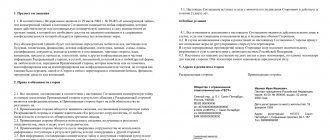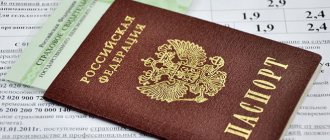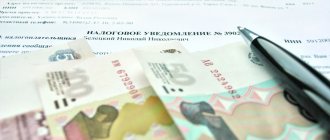The patent system for foreign citizens who arrived for the purpose of employment in the Russian Federation simplifies employment. For migrants who have arrived and are registered in Moscow, the registration and receipt of a patent is organized at the Sakharovo migration center, where there is a fully developed “one-window” system from consultation to the initial issuance of the document and its renewal.
However, a citizen of a foreign country applying for a labor patent may be refused. Justified reasons for refusals always comply with the norms of migration legislation. Let's consider how a migrant should act when the only opportunity to legally get a job in Moscow is to have a valid permit. Is it possible to confirm the personal rights of a foreign citizen as recorded by Russian migration legislation?
How to challenge a refusal to issue a patent at the MMC
Civil rights can be defended in court. But the legal illiteracy of foreigners allows civil servants to engage in certain manipulations. One of them is a verbal refusal by an MMC employee.
Help from a migration lawyer
You have received a refusal to issue a patent, write to us, we will help! Consultation is free.
Attention!
A verbal refusal is a gross legal violation of the internal regulations of the migration and passport department. According to current regulations, regardless of the structure and type of government agency, employees are required to issue only a written refusal.
The written document states:
- the exact reason for the application not being accepted by the MMC employee;
- the signature of the official and the seal of the state institution are affixed;
- details of the organization are indicated;
- the current date is set.
Most often, the refusal is issued on the structure’s letterhead (although it is not a prerequisite). At the same time, the law allows registration on a regular A4 sheet. Regardless of the chosen format, the applicant is required to check that the document is filled out correctly. If there is no official signature or seal, you need to point out the defect to the specialist.
The deadlines for refusal established by law require special attention. If the appeal period is not met, it will no longer be possible to defend your rights.
Appeal through a higher authority
You have received a refusal to issue a patent, write to us, we will help! Consultation is free.
A common reason for refusal to issue a patent is inconsistency with the validity of the deadline (10 days or a month). 30 days is a period that is subject to appeal in court. But you should go to court only if a higher authority failed to achieve a positive result.
To appeal unlawful actions by migration service specialists, a foreign citizen is given three days, specified by the internal regulations of the Federal Migration Service. If you receive a refusal, you must promptly seek the help of qualified lawyers.
Attention!
All appeals are carried out in accordance with the established procedures with the provision of the original or copy of the written refusal. If you immediately go to court, the judge will still send the decision to appeal the refusal to a higher authority. Only after the trial will the case return to court.
Appeal in court
You have received a refusal to issue a patent, write to us, we will help! Consultation is free.
In accordance with the Code of Administrative Procedure, an unlawful refusal is subject to appeal within three months from the date of its issuance. If a foreign person dares to submit an application on the last day, then you should not expect a positive outcome. Therefore, the claim is filed within a period of 3 to 30 days from the date of receipt of the refusal. The statement of claim is accompanied by a written refusal and a response to the appeal to a higher authority.
At least 30 days are allotted for the consideration of the lawsuit, during which the foreign national’s term of temporary stay in the territory of the Russian Federation may expire. In this case, after accepting the claim, you must promptly contact the Federal Migration Service. The government agency writes an application to extend the period of temporary registration until the end of the trial.
Voluntary refusal
Practice shows that entrepreneurs often, when determining the tax regime, first of all choose the patent system, since it offers the maximum number of privileges when doing business. However, as a result, individual entrepreneurs do not always meet the established conditions, in particular regarding the number of employees and total income.
The legislator allows voluntary refusal to obtain a patent, but this is possible only in specifically established cases:
1) Situations where a person has submitted an application to purchase a patent, but the tax service has not yet issued a document confirming the validity of the PSN. Registration and registration of an entrepreneur in the taxation regime under consideration, according to the law, should take no more than five days. During this period, the individual entrepreneur’s refusal will be considered lawful.
2) Situations for which amendments were made to the legislation. If a person has already received permission to switch to the PSN regime, but the authorities have changed the provisions of the law regulating this issue, which does not suit the entrepreneur.
The legislator does not accept other reasons for abandoning the patent system as valid.
Voluntary refusal is always accompanied by a statement drawn up in free form due to the lack of a unified form. A person writes an application to the head of the tax service with a request to note the procedure for registering a PSN or to abolish it based on changes in legislation. The appeal always ends with the date of preparation and the personal signature of the interested subject.
A sample Application for waiver of a patent, form 26.5-3, is available.
Sample application for waiver of patent form 26.5-4 is available.
The video provides more details on how an individual entrepreneur can close the patent taxation system.
Reasons for refusal to issue a patent at MMC
There is a practice that after submitting a package of documents and going through certain procedures, foreign citizens are refused. Document preparation is carried out by qualified specialists and is additionally regulated at the state level. Therefore, the grounds for a negative response must be motivated and argued by the relevant authorities.
In some cases, after checking the documents, there is a chance to receive a refusal to issue a patent. At the same time, MMC specialists cannot make unfounded decisions. According to the current standards of Russian legislation, the reasons why a foreign person may receive a refusal are limited. Such moments include the following cases:
- Not a complete package of documents was provided.
- According to the internal order of the UMFS, the issuance of patents has been temporarily suspended by regulatory legal acts of the Russian Federation.
- Less than 12 months have passed since the cancellation or refusal to issue the document.
- The deadline for obtaining or re-registering a patent has expired.
- The form was filled out incorrectly or deliberately false information was entered.
- Errors, corrections, and deletions were recorded.
Attention!
If a foreign national violated the conditions and procedure for staying on Russian territory, committed a criminal offense, or violated an administrative procedure, then this may also serve as a reason for refusing to issue a patent. Illegal stay on the territory of the Russian Federation, lack of passport and visa control marks fits this article.
Refusal to re-register documents occurs for the following reasons:
- Involvement of third parties in performing work.
- Financing illegally armed gangs, banned organizations, support and propaganda of extremism.
- A term received for a criminal offense or a conviction that has not been fully served, for unlawful acts committed, both on the territory of the Russian Federation and abroad.
- Migration from the territory of the Russian Federation for permanent residence in another state.
- Stay outside the Russian Federation for more than six months.
- Refusal to carry out the fingerprinting procedure.
- Lack of data on the citizen’s official employment during the period of validity of the migration document.
- Request from the judicial and supervisory authorities of the Russian Federation for the revocation of a patent.
Attention!
One of the main reasons for refusal to re-register documents is the repeated number of violations of the conditions of stay of a foreign person on the territory of the Russian Federation. These include: the presence of infectious diseases, alcohol and drug addiction, lack of a receipt for payment of a patent and reliable information about existing labor patents.
If a refusal to issue or re-register a patent is received, a foreign person has the right to appeal this issue in court or within the department.
How to close an IP patent early in 2020?
Entrepreneurs close a patent before its expiration for the following reasons:
- lack of desire to use PSN;
- changes in regional legislation when PSN cannot be applied in the territory of operation;
- in case of exceeding tax law restrictions;
- exceeding annual profit (60 million rubles);
- The staff consists of more than 15 people.
Thus, it is necessary to submit an application to the Federal Tax Service to close an individual entrepreneur on a patent within 10 days after the circumstances occurred that led to the loss of the right to a patent.
What is patent abandonment
Legal work activity of a foreign person on Russian territory is possible only if he has a patent. This document specifies the region of residence and the specialty for which employment is planned. In other words, a person who has received permission to work in the capital does not have the right to go to Krasnodar or Krasnoyarsk.
In case of refusal to issue a patent, a foreigner has the right to appeal this decision to the appropriate authorities. If it was not possible to reach a consensus, then after the expiration of the period of stay in the Russian Federation, the citizen is forced to go to his homeland. After a year, he can return and re-submit documents to the MMC.
Main conditions
The decision on whether to issue a patent or refuse is made on the basis of articles of the Civil Code of the Russian Federation and the Tax Code of the Russian Federation.
Rules by law
If during the consideration of an application for an invention expressed by the formula, it is determined that it meets the patentability requirements contained in Art. 1350 of the Civil Code of the Russian Federation, the executive body issues a resolution to issue a patent. The decision sets the priority date of the invention. If the claimed discovery does not meet the conditions of patentability, then the grant of a patent is refused.
The authorized body informs the applicant about the patentability check before making a final decision. It issues a notice containing certain reasons predisposing to a final decision. The applicant has the right to present his arguments on this issue to the executive body within six months from the date of receipt of the notification.
Article 1350. Conditions for the patentability of an invention
An application for an intellectual invention may be withdrawn by the executive body or the person who filed it.
The applicant has the right to challenge the decision of the executive authority to refuse to issue a patent or to revoke it. To do this, he needs to submit objections to the chamber dealing with patent disputes.
This should be done within six months from the date of receipt of the decision or materials indicating the refusal, if the applicant requested them within 2 months from the date of issue of the decision.
Application procedure
PSN can use IP. The procedure for its receipt and use is regulated by Chapter. 26.5 Tax Code of the Russian Federation and laws of constituent entities. This form of taxation allows an entrepreneur not to submit reports and independently determine the amount of expected income.
An individual entrepreneur has the right to submit an application for a patent to the tax office simultaneously with registration (letter of the Federal Tax Service No. SA-4-14/69 dated 01/09/14). It is issued for a period of one month to a year, and it can be submitted until the 20th.
From the moment of registration until the day the patent is received, the individual entrepreneur must work according to the general taxation system or switch to a simplified one. This obliges the entrepreneur to subsequently submit a declaration.
During the tax period, the average number of individual entrepreneur employees should not be more than 15 people. If an entrepreneur did not have hired workers when registering a patent, but then accepted it, within 10 days he is obliged to contact the tax office to recalculate the amount of the patent for the remaining period.
If the income received by an individual entrepreneur does not depend on the number of workers, there is no need to recalculate the patent. One of the reasons for refusing to issue a patent is the discrepancy between the direction of activity included in the application and that specified in paragraph 2 of Art. 346.43 Tax Code of the Russian Federation.
Section 346.43. General provisions
Since the end of 2020, the Federal Tax Service has required strict compliance of the type reflected in the application with the list in the code. When renting out real estate, you should add in parentheses the amount of possible income per year from one property.
A patent may be refused for several reasons:
- discrepancy between the declared type of activity and the list determined by the legislation of the constituent entities of the Russian Federation;
- indicating an incorrect validity period, for example, exceeding a year;
- loss of the right to use the PSN or termination of the individual entrepreneur’s work under this system during the tax period;
- underpayment of tax accrued under the PSN.
A patent application is written 10 days before the start of using the PSN. If an individual entrepreneur operates at his place of residence, he submits an application to the Federal Tax Service at his place of residence.
If an individual entrepreneur is engaged in business on the territory of the facility, the application is submitted by choice: to the Federal Tax Service of the municipality, city district, city, subject of the Russian Federation at the place of business.
Nuances of using the system
The Ministry of Finance of Russia in letter No. 03-11-12/41899 dated July 18, 2016 provides clarifications on the application of PSN.
The application can be submitted:
- personally;
- through a representative;
- in electronic form via the Internet;
- by mail with description.
When submitting an application, the individual entrepreneur must indicate in it the period of validity of the patent. The tax office issues a paper or notifies of a refusal within 5 days after receiving the application. This interval is calculated in working days. The application must be signed 10 days before it takes effect.
The Federal Tax Service has the right to refuse registration of a patent as specified in paragraph 4 of Art. 346.45 of the Tax Code of the Russian Federation on grounds. These do not include failure to comply with the deadline for submitting a patent application to the tax office.
If an entrepreneur has completed an application less than 10 days before the patent comes into effect, the Federal Tax Service has the right to review the document and issue a patent, which will be valid from the date reflected in the application.
If the tax office verified the application within the period established by law, but the date of issue of the patent occurs after the day it began to be valid, recorded in the application, the individual entrepreneur can clarify the dates of validity of the patent or reissue the application completely.
The above explanations from the Ministry of Finance are advisory in nature and do not contradict the legislative framework of the Russian Federation.
Time spent in Russia without a labor patent
If the document is available, a foreign person can live and work in Russia for a year. After the expiration of this period, the patent is reissued. At the same time, you can extend your stay on Russian territory in this way only once.
If the limit is exhausted, the foreigner is required to leave Russia, re-enter and go through the procedure of obtaining a new patent. In case of refusal to issue a document or unsuccessful appeal in court, the period of stay is significantly shortened. That is, it is 90 days from the moment of entry into the territory of the Russian Federation.
Patent system: brief description
The main feature of PSN is the absence of the need to submit tax reports. However, not every entrepreneur is allowed to apply this regime, since the type of activity of a businessman must be included in the established Art. 346.43 Tax Code of the Russian Federation list.
In addition, a number of restrictions are imposed on financial indicators and the number of employees. Thus, income from activities at PSN cannot be more than 60 million rubles per year, and the number of personnel should not exceed 15 people.
The cost of a patent can be calculated by the taxpayer himself or using the Federal Tax Service service.
Benefits in honor of tax holidays
If an entrepreneur acquired this status for the first time after a tax holiday was declared by regional law, he can obtain a patent free of charge for up to 2 years. The condition is the development of activities that local authorities consider useful in the given region.
Thus, the transition to the patent system is quite simple and not troublesome. The main thing is to make sure that the type of activity of the individual entrepreneur is included in the list established by the Tax Code of the Russian Federation for patent taxation, and the individual entrepreneur itself complies with the conditions that the law sets for it in terms of the number of hired personnel and the volume of revenue. If an entrepreneur strives for serious business development, then it makes sense for him to use other tax systems.
How to close an individual entrepreneur with a patent - step-by-step instructions
In order to close the patent of an individual entrepreneur ahead of schedule, it is necessary to go through several stages:
This is interesting: Where to submit 6 personal income tax on a patent
1. Preparatory. A patent waiver application is filled out.
2. Payment of state duty. The state duty is 160 rubles. Be sure to keep the payment receipt.
3. Submitting documentation to the tax office. The following documents must be submitted:
- citizen's passport;
- TIN;
- completed application;
- Unified State Register of Individual Entrepreneurs (USRIP) record sheet received upon registration of individual entrepreneurs;
- receipt of payment of state duty.
4. Receipt of a liquidation statement. The tax authority checks the documents within 5 working days, after which a decision is made to terminate the activities of the individual entrepreneur. Next, you can contact the institution with your passport to obtain a Unified State Register of Entrepreneurs (USRIP) entry sheet, which will indicate the status of the enterprise and the closure date.
5. Reports. It is necessary to submit declarations, close the current account, and deregister the cash register.
Blog categories
Popular articles
The Personal Data Subject (hereinafter referred to as the Subject) gives consent to the Legal Limited Liability Company (hereinafter referred to as the Company), located at the address: Moscow, Suschevsky Val 16, building 4, office 509, to process his personal data , including collection, systematization, accumulation , storage, clarification (updating, changing), use, distribution, depersonalization, blocking, destruction of personal data, including using automation tools for the purpose of analyzing purchasing behavior and improving the quality of services provided, as well as providing the Subject of personal data with commercial, informational information and advertising (including special offers and promotions of the Company) through various communication channels, including by mail, SMS, email, telephone, if the Personal Data Subject expresses a desire to receive such information by appropriate means of communication.
The Company takes all reasonable measures to protect the received personal data of the Subject from destruction, distortion or disclosure.
In addition to the Company, the Subjects themselves have access to their personal data; Company employees; persons providing support to the Company's services to the extent necessary to provide such support; other persons whose rights and obligations regarding access to relevant information are established by the legislation of the Russian Federation.
The Company guarantees compliance with the following rights of the Personal Data Subject: the right to receive information about what personal data of the Personal Data Subject is stored by the Company; the right to delete, clarify or correct personal data stored by the Company; other rights established by the current legislation of the Russian Federation. The Company undertakes to immediately stop processing personal data upon receipt of the corresponding request of the Personal Data Subject, drawn up in writing and sent to the Company’s address indicated above.
The consent of the Personal Data Subject to the processing of personal data is valid indefinitely and can be withdrawn at any time by the Personal Data Subject by writing to the Company.
1.1. This document defines the policy of the Limited Liability Company "YurStart" (hereinafter referred to as the Company) regarding the processing of personal data.
1.2 This Policy has been developed in accordance with the current legislation of the Russian Federation on personal data.
1.3 This Policy applies to all processes of collection, recording, systematization, accumulation, storage, clarification, extraction, use, transfer (distribution, provision, access), depersonalization, blocking, deletion, destruction of personal data carried out using automation tools and without the use of such means.
1.4. The policy is strictly followed by the Company's employees.
personal data - any information relating to a directly or indirectly identified or identifiable individual (subject of personal data);
operator - a state body, municipal body, legal entity or individual, independently or jointly with other persons organizing and (or) carrying out the processing of personal data, as well as determining the purposes of processing personal data, the composition of personal data to be processed, actions (operations) performed with personal data;
processing of personal data - any action (operation) or set of actions (operations) performed using automation tools or without the use of such means with personal data, including collection, recording, systematization, accumulation, storage, clarification (updating, changing), extraction, use, transfer (distribution, provision, access), depersonalization, blocking, deletion, destruction of personal data;
automated processing of personal data - processing of personal data using computer technology;
dissemination of personal data - actions aimed at disclosing personal data to an indefinite number of persons;
provision of personal data - actions aimed at disclosing personal data to a certain person or a certain circle of persons;
blocking of personal data - temporary cessation of processing of personal data (except for cases where processing is necessary to clarify personal data);
destruction of personal data - actions as a result of which it becomes impossible to restore the content of personal data in the personal data information system and (or) as a result of which material media of personal data are destroyed;
depersonalization of personal data - actions as a result of which it becomes impossible, without the use of additional information, to determine the ownership of personal data to a specific subject of personal data;
personal data information system - a set of personal data contained in databases and information technologies and technical means that ensure their processing.
- Principles and conditions for processing personal data
3.1. The processing of personal data is carried out on the basis of the following principles:
1) The processing of personal data is carried out on a legal and fair basis;
2) The processing of personal data is limited to the achievement of specific, predetermined and legitimate purposes. Processing of personal data that is incompatible with the purposes of collecting personal data is not permitted;
3) It is not allowed to combine databases containing personal data, the processing of which is carried out for purposes incompatible with each other;
4) Only those personal data that meet the purposes of their processing are subject to processing;
5) The content and volume of personal data processed correspond to the stated purposes of processing. The personal data processed is not redundant in relation to the stated purposes of processing;
6) When processing personal data, the accuracy of personal data, their sufficiency, and, if necessary, relevance in relation to the stated purposes of their processing are ensured.
7) The storage of personal data is carried out in a form that makes it possible to identify the subject of personal data no longer than required by the purposes of processing personal data, unless the period for storing personal data is established by federal law, an agreement to which the subject of personal data is a party, beneficiary or guarantor. The processed personal data is subject to destruction or depersonalization upon achievement of the processing goals or in the event of loss of the need to achieve these goals, unless otherwise provided by federal law.
 The Company in its activities proceeds from the fact that the subject of personal data provides accurate and reliable information during interaction with the Company and notifies Company representatives about changes in his personal data.
The Company in its activities proceeds from the fact that the subject of personal data provides accurate and reliable information during interaction with the Company and notifies Company representatives about changes in his personal data.
3.2. The company processes personal data only in the following cases:
- processing of personal data is carried out with the consent of the subject of personal data to the processing of his personal data;
- the processing of personal data is carried out in connection with the participation of a person in constitutional, civil, administrative, criminal proceedings, proceedings in arbitration courts;
- processing of personal data is necessary for the execution of a judicial act, an act of another body or official that is subject to execution in accordance with the legislation of the Russian Federation on enforcement proceedings (hereinafter referred to as the execution of a judicial act);
- processing of personal data is necessary for the execution of an agreement to which the subject of personal data is a party or beneficiary or guarantor, as well as for concluding an agreement on the initiative of the subject of personal data or an agreement under which the subject of personal data will be a beneficiary or guarantor;
- the processing of personal data is necessary to protect the life, health or other vital interests of the subject of personal data, if obtaining the consent of the subject of personal data is impossible;
This is interesting: Patent for repairing and sewing garments
3.4. The company has the right to entrust the processing of personal data of citizens to third parties on the basis of an agreement concluded with these persons. Persons processing personal data on behalf of Yuridicheskaya LLC undertake to comply with the principles and rules for the processing and protection of personal data provided for by Federal Law No. 152-FZ “On Personal Data”. For each person, a list of actions (operations) with personal data is determined that will be performed by the legal entity processing personal data, the purposes of processing, the obligation of such a person to maintain confidentiality and ensure the security of personal data during their processing is established, and requirements for the protection of processed personal data are specified. data.
3.5. If the Company entrusts the processing of personal data to another person, the Company is responsible to the subject of personal data for the actions of the said person. The person processing personal data on behalf of the Company is responsible to the Company.
3.6. The Company does not make decisions based solely on automated processing of personal data that give rise to legal consequences in relation to the subject of personal data or otherwise affect his rights and legitimate interests.
3.7. The company destroys or depersonalizes personal data upon achieving the purposes of processing or in the event of the loss of the need to achieve the purpose of processing.
- Subjects of personal data
4.1. The company processes personal data of the following persons:
- employees of the Company, as well as entities with whom civil contracts have been concluded;
- candidates to fill vacant positions in the Company;
- clients of Legal LLC;
- users of the website of Legal LLC;
4.2. In some cases, the Company may also process personal data of representatives of the above-mentioned personal data subjects authorized on the basis of a power of attorney.
- Rights of personal data subjects
5.1. The subject of personal data whose data is processed by the Company has the right to:
5.1.1. Receive from the Company within the time limits provided for by law the following information:
- confirmation of the fact of processing of personal data by Yuridicheskaya LLC;
- on the legal grounds and purposes of processing personal data;
- about the methods used by the Company for processing personal data;
- about the name and location of the Company;
- about persons who have access to personal data or to whom personal data may be disclosed on the basis of an agreement with Legal LLC or on the basis of federal law;
- a list of processed personal data relating to the citizen from whom the request was received and the source of its receipt, unless a different procedure for providing such data is provided for by federal law;
- about the terms of processing of personal data, including the periods of their storage;
- on the procedure for a citizen to exercise the rights provided for by the Federal Law “On Personal Data” No. 152-FZ;
- name and address of the person processing personal data on behalf of the Company;
- other information provided for by the Federal Law “On Personal Data” No. 152-FZ or other federal laws.
5.1.2. Request clarification of your personal data, their blocking or destruction if the personal data is incomplete, outdated, inaccurate, illegally obtained or is not necessary for the stated purpose of processing.
5.1.3. Withdraw your consent to the processing of personal data.
5.1.4. Demand the elimination of unlawful actions of the Company in relation to his personal data.
5.1.5. Appeal the actions or inaction of the Company to the Federal Service for Supervision in the Sphere of Communications, Information Technologies and Mass Communications or in court if a citizen believes that Legal LLC is processing his personal data in violation of the requirements of Federal Law No. 152-FZ “On Personal Data” data" or otherwise violates his rights and freedoms.
5.1.6. To protect your rights and legitimate interests, including compensation for losses and/or compensation for moral damage in court.
6.1. In accordance with the requirements of Federal Law No. 152-FZ “On Personal Data”, the Company is obliged to:
- Provide the subject of personal data, upon his request, with information regarding the processing of his personal data, or, on legal grounds, provide a reasoned refusal containing a reference to the provisions of the Federal Law.
- At the request of the personal data subject, clarify the processed personal data, block or delete if the personal data is incomplete, outdated, inaccurate, illegally obtained or is not necessary for the stated purpose of processing.
- Keep a log of requests from personal data subjects, which should record requests from personal data subjects to receive personal data, as well as the facts of providing personal data in response to these requests.
- Notify the subject of personal data about the processing of personal data if the personal data was not received from the subject of personal data.
The following cases are exceptions:
— The subject of personal data is notified of the processing of his personal data by the relevant operator;
— Personal data was obtained by the Company on the basis of federal law or in connection with the execution of an agreement to which the subject is a party or beneficiary or guarantor.
— Personal data was obtained from a publicly available source;
— Providing the subject of personal data with the information contained in the Notice of processing of personal data violates the rights and legitimate interests of third parties.
6.2. If the purpose of processing personal data is achieved, the Company is obliged to immediately stop processing personal data and destroy the relevant personal data within a period not exceeding thirty days from the date of achieving the purpose of processing personal data, unless otherwise provided by the agreement to which the subject is a party, beneficiary or guarantor personal data, another agreement between the Company and the subject of personal data, or if the Company does not have the right to process personal data without the consent of the subject of personal data on the grounds provided for by No. 152-FZ “On Personal Data” or other federal laws.
6.3. If the subject of personal data withdraws consent to the processing of his personal data, the Company is obliged to stop processing personal data and destroy personal data within a period not exceeding thirty days from the date of receipt of the said withdrawal, unless otherwise provided by an agreement between the Company and the subject of personal data. The Company is obliged to notify the subject of personal data about the destruction of personal data.
6.4. If a subject receives a request to stop processing personal data in order to promote goods, works, and services on the market, the Company is obliged to immediately stop processing personal data.
6.5. The company is obliged to process personal data only with the written consent of the subject of personal data, in cases provided for by Federal Law.
6.7. The company is obliged to explain to the subject of personal data the legal consequences of refusal to provide his personal data if the provision of personal data is mandatory in accordance with Federal Law.
6.8. Notify the subject of personal data or his representative about all changes concerning the corresponding subject of personal data.
- Information about the measures taken to protect personal data
7.1. When processing personal data, the Company takes the necessary legal, organizational and technical measures to protect personal data from unauthorized or accidental access, destruction, modification, blocking, copying, provision, distribution of personal data, as well as from other unlawful actions in relation to personal data.
7.2. Ensuring the security of personal data is achieved, in particular:
- identifying threats to the security of personal data during their processing in personal data information systems;
- application of organizational and technical measures to ensure the security of personal data during their processing in personal data information systems necessary to fulfill the requirements for the protection of personal data, the implementation of which ensures the levels of personal data security established by the Government of the Russian Federation;
- the use of information security means that have passed the compliance assessment procedure in accordance with the established procedure;
- assessing the effectiveness of measures taken to ensure the security of personal data before putting into operation the personal data information system;
- taking into account computer storage media of personal data;
- detecting facts of unauthorized access to personal data and taking measures;
- restoration of personal data modified or destroyed due to unauthorized access to it;
- establishing rules for access to personal data processed in the personal data information system, as well as ensuring registration and accounting of all actions performed with personal data in the personal data information system;
- control over the measures taken to ensure the security of personal data and the level of security of personal data information systems.
- assessment of the harm that may be caused to subjects of personal data in the event of a violation of the legislation of the Russian Federation in the field of personal data, the relationship between this harm and the measures taken aimed at ensuring compliance with the legislation of the Russian Federation in the field of personal data.
This is interesting: Checking a patent for a utility model








